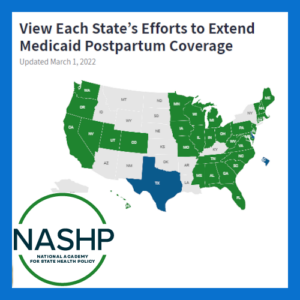Courageous Action for the Health of Our Communities
The final day of the 2025 Annual Conference on Health Philanthropy focused on milestone moments in health like the 20th anniversary of Hurricane Katrina and elevated the philanthropic partnerships already inspiring a better tomorrow. While much of the conference was spent reflecting, today was marked by action and what comes next: standing firm in values, being courageous, and co-creating a vision for the future.
Reimagining Health Philanthropy, Together
During Day 2 of the 2025 Annual Conference on Health Philanthropy, attendees across sectors worked together to identify the intersections of their work and co-created solutions for healthier, thriving communities. Sessions spanned a wide range of topics, from exploring business’ role in health equity to strategies for supporting staff in uncertain times.
Young People and the Safety Net
The Urban Institute has added a new video to a suite of resources focused on safety net services for adolescents and young adults. Young People and the Safety Net reflects findings from research examining key barriers and supports for young people seeking safety net services. Highlights include a fact sheet for organizations that seek to help young people gain safety net supports.
View Each State’s Efforts to Extend Medicaid Postpartum Coverage
The National Academy of State Health Policy has recently updated its tracking of states’ efforts to extend Medicaid postpartum coverage. Extending services for new mothers is a key step toward improving health outcomes and health equity for children and their family members. About 34 states and the District of Columbia have taken steps toward extending at least some coverage beyond current limits.
Philanthropy @ Work – Transitions – March 2022
The latest on transitions from the field.
Health Foundation of Central Massachusetts: March 2022
The Activation Fund supports discrete, one-year projects in Central Massachusetts that demonstrate creative and innovative approaches to addressing community health concerns and that move an organization to its next level of capacity and effectiveness, which can be sustained beyond the term of the grant.









